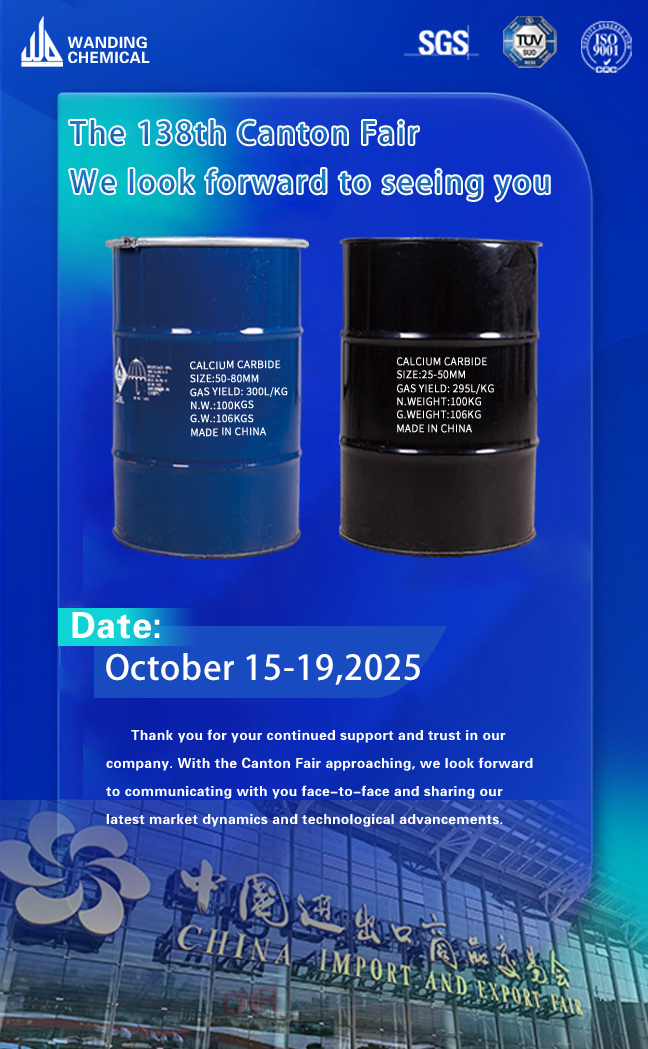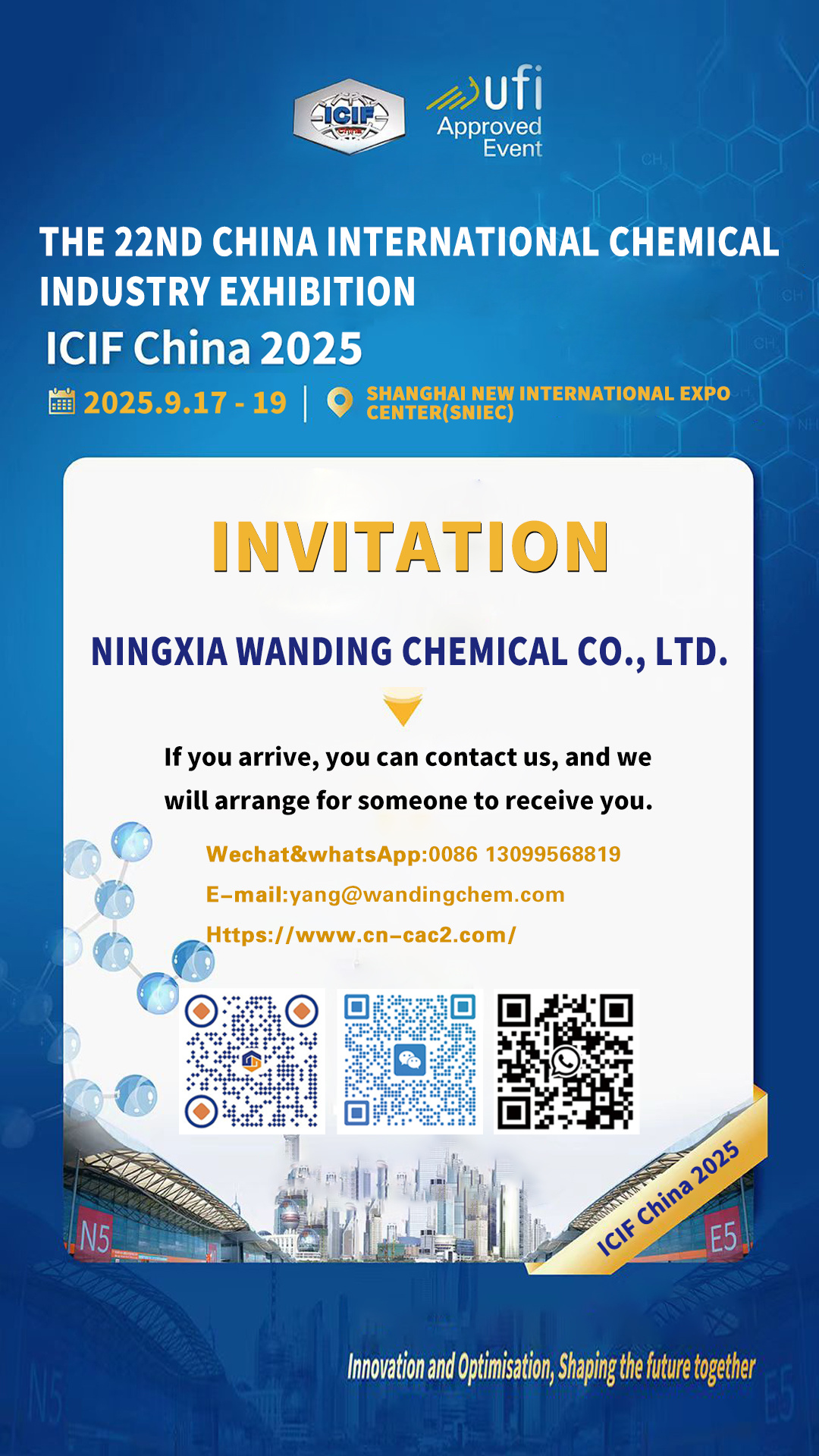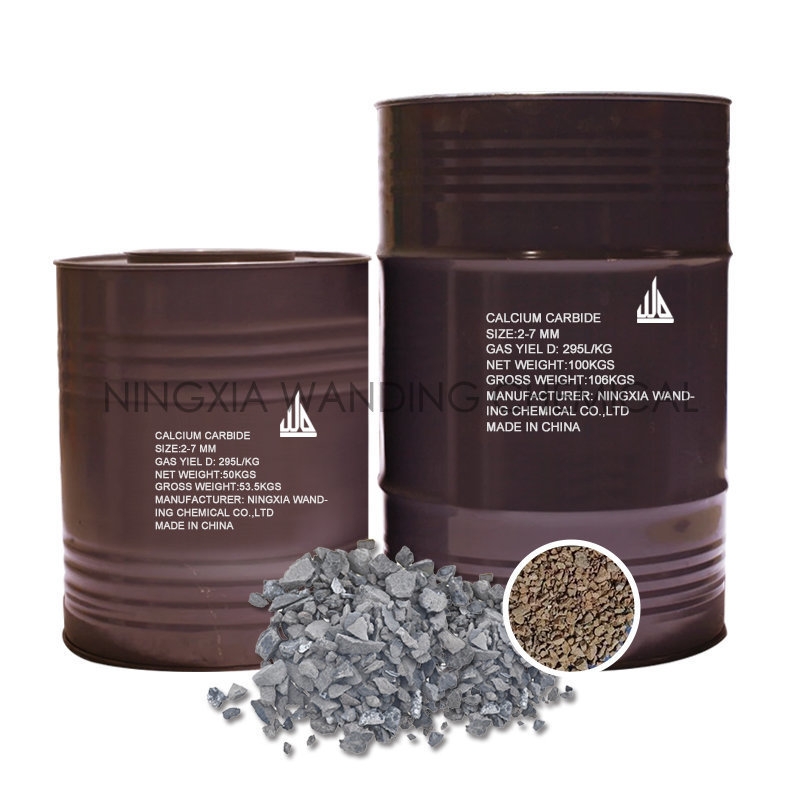Understanding the Benefits of Durable Calcium Carbide 50-80mm in Metallurgical Applications
Release Time:
2025-02-11
Understanding the Benefits of Durable Calcium Carbide 50-80mm in Metallurgical Applications Table of Contents 1. Introduction to Calcium Carbide 2. The Role of Calcium Carbide in Metallurgical Processes 3. Advantages of Using Durable Calcium Carbide 50-80mm 3.1. Enhanced Purity and Quality 3.2. Improved Efficiency in Production 3.3. Cost-Effectiveness and Economic Benefits 4. Applications of Calci
Understanding the Benefits of Durable Calcium Carbide 50-80mm in Metallurgical Applications
Table of Contents
1. Introduction to Calcium Carbide
2. The Role of Calcium Carbide in Metallurgical Processes
3. Advantages of Using Durable Calcium Carbide 50-80mm
3.1. Enhanced Purity and Quality
3.2. Improved Efficiency in Production
3.3. Cost-Effectiveness and Economic Benefits
4. Applications of Calcium Carbide in Metallurgy
4.1. Production of Acetylene
4.2. Desulfurization in Steel Manufacturing
4.3. Use in Foundries and Casting Processes
5. Characteristics of Durable Calcium Carbide 50-80mm
5.1. Physical and Chemical Properties
5.2. Storage and Handling Guidelines
6. Environmental Impact and Safety Measures
7. Frequently Asked Questions (FAQs)
8. Conclusion
1. Introduction to Calcium Carbide
Calcium carbide (CaC2) is an inorganic compound that plays a crucial role in various industrial applications, especially in metallurgy. Known for its ability to generate acetylene gas upon reaction with water, calcium carbide has extensive uses in the metalworking and welding industries. Among its various forms, the durable grades of calcium carbide measuring 50-80mm stand out due to their superior performance and versatility.
2. The Role of Calcium Carbide in Metallurgical Processes
In metallurgy, calcium carbide is primarily used for its powerful desulfurization properties and as a reducing agent. The compound is integrated into processes that require the removal of sulfur from metals, particularly during steel production. This not only enhances the quality of the metal but also improves its mechanical properties, making calcium carbide an invaluable resource for metallurgists.
3. Advantages of Using Durable Calcium Carbide 50-80mm
3.1. Enhanced Purity and Quality
One of the standout benefits of using durable calcium carbide in the 50-80mm range is its **enhanced purity**. High-quality calcium carbide results in **fewer impurities**, leading to more refined metallurgical products. This improved quality is critical, especially in industries where the integrity of the final product is paramount.
3.2. Improved Efficiency in Production
Durable calcium carbide 50-80mm provides **optimal particle size** for efficient melting and reactions within metallurgical processes. The larger size allows for better handling and minimizes dust generation, which can lead to **production inefficiencies**. When used in furnaces, the durability of this grade leads to consistent performance, reducing the frequency of material replenishment.
3.3. Cost-Effectiveness and Economic Benefits
Investing in durable calcium carbide can result in significant **cost savings** for metallurgical operations. The efficiency gains from reduced waste and improved quality translate into **lower operational costs**. Moreover, the long lifespan of durable calcium carbide means that companies can minimize their procurement frequency, further enhancing their economic efficiency.
4. Applications of Calcium Carbide in Metallurgy
Calcium carbide finds extensive applications in various metallurgical processes, contributing to enhanced productivity and quality.
4.1. Production of Acetylene
One of the primary uses of calcium carbide is in the production of **acetylene gas**, which is crucial for welding and cutting metals. This gas is produced when calcium carbide reacts with water, making it essential in industries requiring high-temperature flame applications.
4.2. Desulfurization in Steel Manufacturing
In steel production, calcium carbide is employed as a **desulfurizing agent**. By removing sulfur from iron and steel alloys, it significantly enhances the mechanical properties and overall quality of the steel, ensuring that it meets the stringent requirements of various applications.
4.3. Use in Foundries and Casting Processes
Calcium carbide is also utilized within **foundries**, where it aids in the casting process. Its ability to control the chemical composition of molten metals ensures the production of high-quality castings, vital for the automotive, aerospace, and construction industries.
5. Characteristics of Durable Calcium Carbide 50-80mm
Understanding the properties of durable calcium carbide is essential for its effective application in metallurgy.
5.1. Physical and Chemical Properties
Durable calcium carbide 50-80mm boasts specific **physical properties** such as high density and durability. Chemically, it is stable under various conditions, allowing for safe handling and usage in diverse metallurgical applications.
5.2. Storage and Handling Guidelines
Proper **storage and handling** are crucial for maintaining the integrity of calcium carbide. It should be stored in a cool, dry place, away from moisture and incompatible materials. Additionally, personnel handling calcium carbide must follow established safety protocols to prevent exposure to harmful reactions.
6. Environmental Impact and Safety Measures
The use of calcium carbide in metallurgical applications poses certain environmental concerns, particularly regarding its production and disposal. Companies must adhere to strict regulations to minimize their ecological footprint. Implementing safety measures during storage and handling is not only a regulatory requirement but also critical for protecting the health of workers and the community.
7. Frequently Asked Questions (FAQs)
What is calcium carbide used for in metallurgy?
Calcium carbide is primarily used in metallurgy for desulfurization and as a reducing agent in steel production.
How does the size of calcium carbide affect its performance?
The size of calcium carbide impacts its melting efficiency and reaction rates; larger sizes like 50-80mm minimize dust and enhance handling.
Is calcium carbide safe to handle?
While calcium carbide can be safely handled, it is important to follow proper storage and handling guidelines to prevent hazardous reactions with moisture.
What are the economic benefits of using durable calcium carbide?
Durable calcium carbide leads to cost savings through reduced waste, improved production efficiency, and decreased procurement frequency.
Are there environmental concerns related to calcium carbide manufacturing?
Yes, the production and disposal of calcium carbide can have environmental impacts, necessitating adherence to safety regulations and best practices.
8. Conclusion
In conclusion, the utilization of durable calcium carbide 50-80mm in metallurgical applications brings forth a multitude of benefits. Its enhanced purity, efficiency in production, and cost-effectiveness make it a vital component in various industrial processes. As industries continue to seek ways to improve quality and reduce costs, the role of calcium carbide will undoubtedly remain significant. Understanding its benefits and applications positions metallurgists and industry professionals to make informed decisions that enhance their operations and contribute positively to their respective fields. By leveraging the advantages of durable calcium carbide, businesses can unlock new levels of productivity and quality in their metallurgical endeavors.
News Hotspot





















